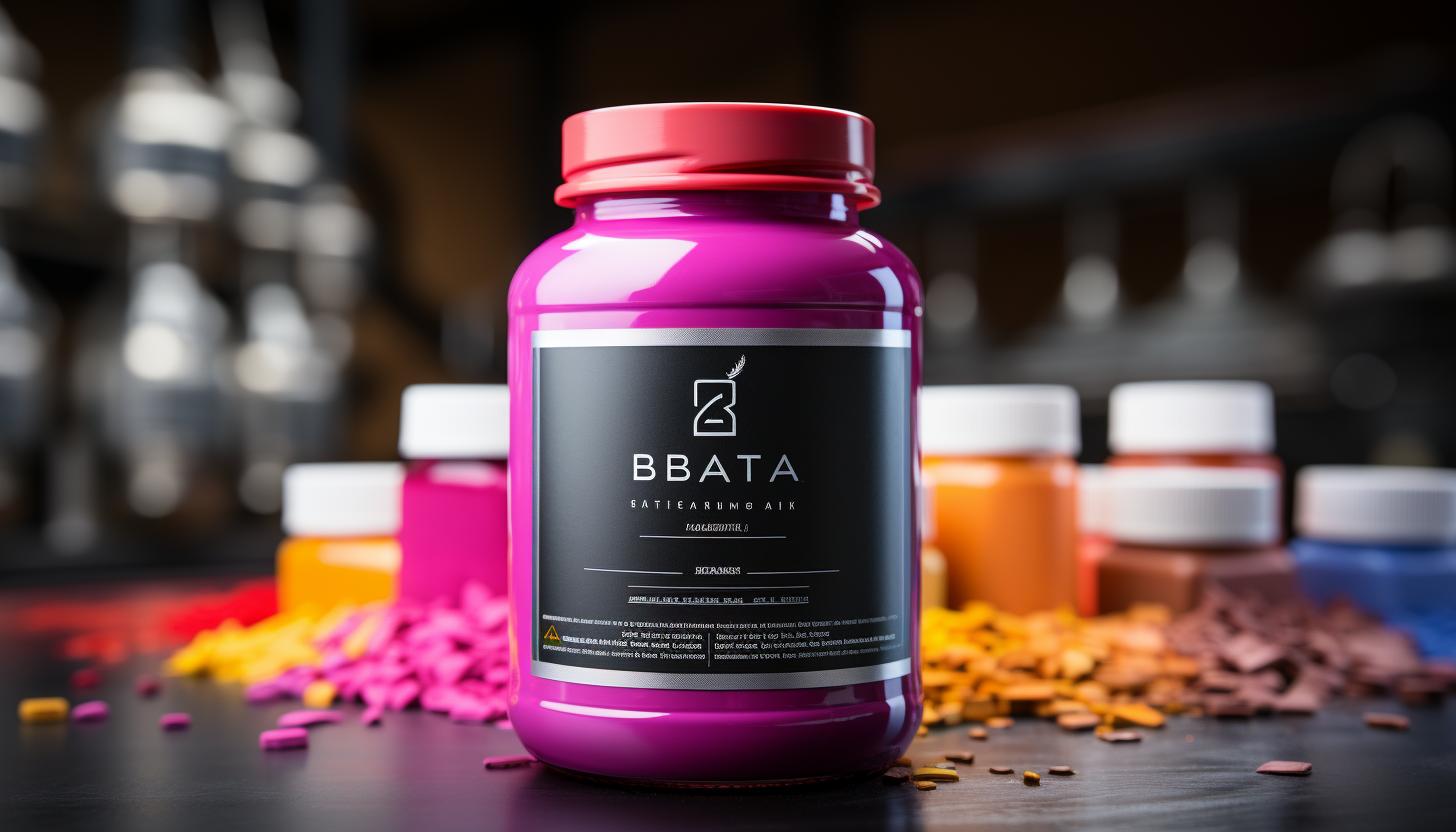Post-Workout Recovery Supplements: Do They Really Help

Do you ever wonder if post-workout recovery supplements actually make a difference?
Well, here’s the scoop: they just might be your secret weapon for optimal muscle repair and growth. These supplements are specifically designed to replenish nutrients, reduce muscle soreness, and enhance recovery after a tough workout.
With a wide range of options available, knowing which ones to choose can be overwhelming. But fear not! In this article, we’ll break down the science behind these supplements and help you find the perfect one for your needs.
The Science Behind Post-Workout Recovery Supplements

If you’re wondering whether post-workout recovery supplements actually work, let’s delve into the science behind them.
When it comes to post-workout recovery, nutrition plays a crucial role. After intense exercise, your body needs nutrients to repair and replenish muscles. Protein is particularly important for muscle recovery as it helps repair damaged tissue and build new muscle fibers. Carbohydrates are also essential as they replenish glycogen stores in your muscles, providing energy for future workouts.
Now, let’s address some common misconceptions about post-workout recovery supplements.
One misconception is that these supplements are necessary for optimal recovery. While they can be beneficial, they are not essential if you have a well-balanced diet that includes an adequate amount of protein and carbohydrates.
Another misconception is that more is better when it comes to these supplements. It’s important to remember that excessive intake of certain nutrients can have negative effects on your health. Always follow the recommended dosage instructions and consult with a healthcare professional before adding any new supplement to your routine.
Key Ingredients to Look for in Post-Workout Recovery Supplements

When choosing a post-workout recovery supplement, it’s important to look for key ingredients that can aid in muscle repair and reduce inflammation. Here are three key ingredients to consider:
– Branched-chain amino acids (BCAAs): BCAAs are essential amino acids that help promote muscle protein synthesis and decrease muscle protein breakdown. They have been shown to enhance recovery, reduce muscle soreness, and improve exercise performance.
– Creatine: Creatine is a naturally occurring compound found in our muscles. It helps replenish ATP stores, which provides energy for muscle contractions during exercise. Supplementing with creatine has been shown to improve strength, power, and muscle mass gains.
– Tart cherry extract: Tart cherries are rich in antioxidants called anthocyanins, which have anti-inflammatory properties. Research suggests that tart cherry extract may help reduce markers of inflammation and muscle damage after intense exercise.
It’s also important to note the misconceptions about post-workout recovery supplements. One common misconception is that supplements alone can replace proper hydration practices. Hydration plays a crucial role in post-workout recovery as it helps transport nutrients to your muscles and aids in the removal of metabolic waste products.
Another misconception is that more is always better when it comes to supplements. It’s important to follow recommended dosages and consult with a healthcare professional before starting any new supplement regimen.
Are Post-Workout Recovery Supplements Necessary for Everyone

While not essential for everyone, post-workout recovery supplements can be beneficial for individuals looking to optimize their muscle repair and reduce inflammation. These supplements often contain a combination of ingredients such as protein, carbohydrates, electrolytes, and antioxidants that are designed to support the body’s recovery process after intense exercise.
One of the main advantages of using post-workout recovery supplements is their convenience. They provide a quick and easy way to replenish nutrients and promote muscle repair without having to prepare a full meal. Additionally, these supplements are often formulated with specific ratios of macronutrients that can help maximize muscle protein synthesis and glycogen replenishment.
However, it’s important to consider both the pros and cons before incorporating these supplements into your routine. While they can be effective in aiding recovery, they may not be necessary for everyone. If you have a well-balanced diet that includes adequate amounts of protein, carbohydrates, and other essential nutrients, you may not need additional supplementation.
In fact, there are alternative ways to enhance post-workout recovery without relying solely on supplements. Consuming whole foods that are rich in protein (such as lean meats or plant-based sources like tofu or legumes) along with complex carbohydrates (like quinoa or sweet potatoes) can provide similar benefits in terms of nutrient replenishment.
Ultimately, whether or not you choose to use post-workout recovery supplements depends on your individual goals and preferences. It’s always best to consult with a healthcare professional or registered dietitian who can assess your specific needs and guide you towards the most suitable approach for optimizing your post-workout recovery.
Potential Benefits of Using Post-Workout Recovery Supplements

To optimize your muscle repair and reduce inflammation, incorporating post-workout recovery supplements can be beneficial. These supplements are specifically designed to support your body’s recovery process after intense physical activity. Here are three potential benefits of using post-workout recovery supplements:
– Muscle soreness relief: One of the main reasons people turn to these supplements is to alleviate muscle soreness. Certain ingredients like branched-chain amino acids (BCAAs) and tart cherry extract have been shown to reduce muscle damage and decrease soreness after exercise. By including these supplements in your routine, you may experience less discomfort and be able to bounce back quicker for your next workout.
– Improved muscle recovery: Post-workout recovery supplements often contain essential nutrients such as protein, which is crucial for repairing and rebuilding muscles. Consuming an adequate amount of protein within the first hour or two after exercise has been shown to enhance muscle recovery and promote growth.
– Reduced inflammation: Intense workouts can lead to inflammation in the body, which can hinder proper recovery. Some post-workout supplements include anti-inflammatory ingredients like turmeric or omega-3 fatty acids, which may help reduce inflammation levels and promote faster healing.
Incorporating post-workout recovery supplements into your routine may aid in muscle soreness relief, improved muscle recovery, and reduced inflammation.
It’s important to note that while these products can be helpful, they should not replace a balanced diet or compromise overall nutrition goals. As always, it’s best to consult with a healthcare professional before starting any new supplement regimen.
How to Choose the Right Post-Workout Recovery Supplement for You

Finding the right post-workout recovery supplement for you can be a matter of considering your specific fitness goals and consulting with a healthcare professional. It’s important to choose alternatives that are safe, effective, and cater to your individual needs. Many people make common mistakes when it comes to selecting the right supplement, so let’s discuss some key points to keep in mind.
First and foremost, always consult with a healthcare professional before starting any new supplement regimen. They can provide personalized advice based on your current health status and fitness goals.
Next, consider your specific needs. Are you looking to build muscle? Improve endurance? Reduce soreness? Different supplements target different aspects of recovery, so choose one that aligns with your desired outcomes.
When choosing a post-workout recovery supplement, check the ingredient list for evidence-based ingredients such as branched-chain amino acids (BCAAs), creatine monohydrate, and beta-alanine. These have been shown in research studies to support muscle recovery and improve performance.
Avoid falling into the trap of believing extravagant marketing claims without scientific evidence. Look for reputable brands that prioritize quality control and third-party testing to ensure purity and potency.
Lastly, don’t forget about proper nutrition! Supplements should complement a well-balanced diet rich in protein, carbohydrates, healthy fats, vitamins, and minerals.
Conclusion
So, do post-workout recovery supplements really help? The science says yes, they can be beneficial.
By providing key ingredients like protein, amino acids, and carbohydrates, these supplements support muscle repair and replenish energy stores.
However, it’s important to note that they may not be necessary for everyone. If you’re already getting enough nutrients from a balanced diet, you may not need them.
Ultimately, the choice is yours. Consider your specific needs and goals when choosing the right post-workout recovery supplement for you.






